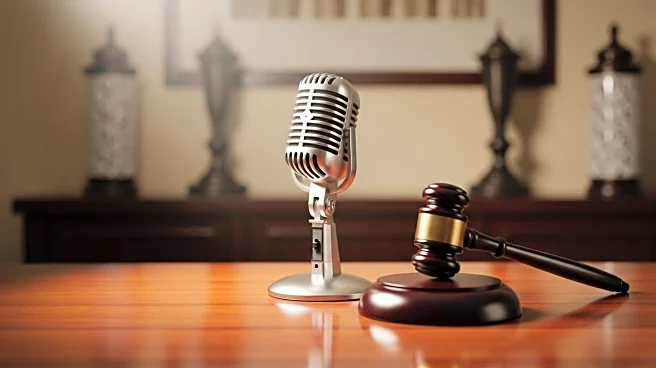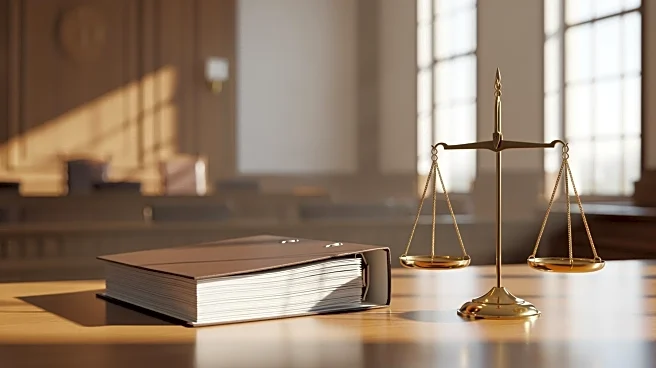What is the story about?
What's Happening?
Senator Rand Paul has publicly criticized Federal Communications Commission Chair Brendan Carr for his comments threatening to take action against Disney's ABC. Carr suggested revoking broadcasting licenses following remarks made by late-night host Jimmy Kimmel about Republicans' response to the assassination of conservative activist Charlie Kirk. Paul stated that Carr's involvement was 'absolutely inappropriate' and emphasized the right to free speech, although he noted that employment is not guaranteed for those who make controversial statements. The situation has sparked debate over free speech limits and corporate responsibility, with Kimmel's removal from ABC drawing criticism from Democrats and free speech advocates.
Why It's Important?
The controversy highlights ongoing tensions between free speech rights and corporate governance in the U.S. media landscape. The FCC's potential involvement in media content regulation raises concerns about government overreach and censorship. This incident could impact how media companies handle politically sensitive content and employee conduct. The debate also underscores the polarized political climate, where actions against media figures can be perceived as politically motivated, affecting public trust in regulatory bodies and media institutions.
What's Next?
The situation may lead to further scrutiny of the FCC's role in regulating media content and its influence on broadcasting licenses. Stakeholders, including media companies, free speech advocates, and political leaders, are likely to engage in discussions about the balance between free speech and corporate responsibility. The outcome could influence future policies on media regulation and employee conduct in politically charged environments.
Beyond the Headlines
The incident raises ethical questions about the limits of free speech and the responsibilities of media companies in moderating content. It also reflects broader societal debates about political bias and the role of government in media oversight. Long-term implications may include shifts in media policy and public perception of free speech rights.















